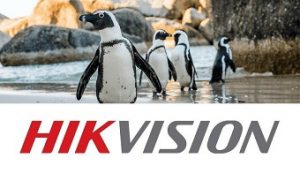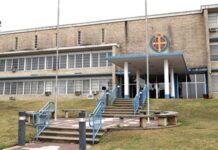
When talking about penguins, people normally think of snowy Antarctica. However, many would be surprised to know that Africa is also home to penguin families. The African penguin is a unique species that has been classified endangered from a population of over a million in the 1920s to only 13,300 breeding pairs left in South Africa currently and could be extinct in the wild by 2030.
Historical factors of guano scraping for agricultural fertilizer destroyed the African penguins’ breeding habitat, leading to predation during the crucial fledgling stage. An estimated 13 million-plus penguin eggs were harvested as a delicacy that caused the initial crash in numbers.
In addition, the African penguin also faces issues of predation by gulls/seals/sharks, oiling, marine pollution, and a lack of fish due to overfishing in their crucial hunting grounds.
Since 2006, the Dyer Island Conservation Trust (DICT) has been rescuing birds and providing nests to help them during the fledgling stage, which improves the breeding success. In 2015, DICT opened the African Penguin and Seabird Sanctuary (APSS) with a fully equipped lab and a vet on standby.
Now, Hikvision has partnered with DICT to protect the African penguin. At the initial phase of the conservation project, Hikvision cameras were deployed at APSS, which makes it possible for the public to view the feeding and rehabilitation process, and bring the conservation message of the African penguin to a wider audience.
“We have always wanted to share the daily work we do at the APSS with a larger audience. Through the use of cameras, this will be possible. The planning of this project started in 2019. At the time, little did we know that the lockdown caused by the epidemic would prohibit visitors from temporarily viewing the penguins. So being able to view the penguins from one’s home will mean we don’t have to forget about our feathered friends,” said Wilfred Chivell, the Founder of DICT.
Ping Yu, Cape Town Branch Manager of Hikvision South Africa, elaborated on the partnership, stating “Hikvision is committed to using technology for good. We are very pleased to be able to support the efforts of APSS’s critical conservation work.”
Hikvision’s cameras have the latest technology that provides multiple views and high-quality images. The pan-tilt-zoom functions of Hikvision products are ideal for non-invasive wildlife observation, part of the efforts to ensure future breeding populations. In the next phase of the project, DICT plans to deploy Hikvision cameras on Dyer Island, once a thriving colony that had 25,000 breeding pairs of the African penguins in the 1970s. There are now less than 1,500 pairs left.
Due to the sensitive nature of the island, it is not open for the public, but with the use of Hikvision cameras, people can observe the penguins as they interact in their natural habitat. This will help with scientific monitoring and bring the island to the general public, and the video technology and solution provided by Hikvision are expected to improve the conservation work from a few other aspects:
• It can help to evaluate the nesting and breeding on Dyer Island.
• It is an innovative method to identify possible injured or compromised birds without causing unnecessary disturbance to breeding birds. The staff and volunteers can immediately treat any birds, thereby increasing their survival rate.
• It is a useful tool for island rangers to spot trespassers on the island.
Hikvision is committed to exploring how innovative technology can secure the sustainability and biodiversity of the world.











